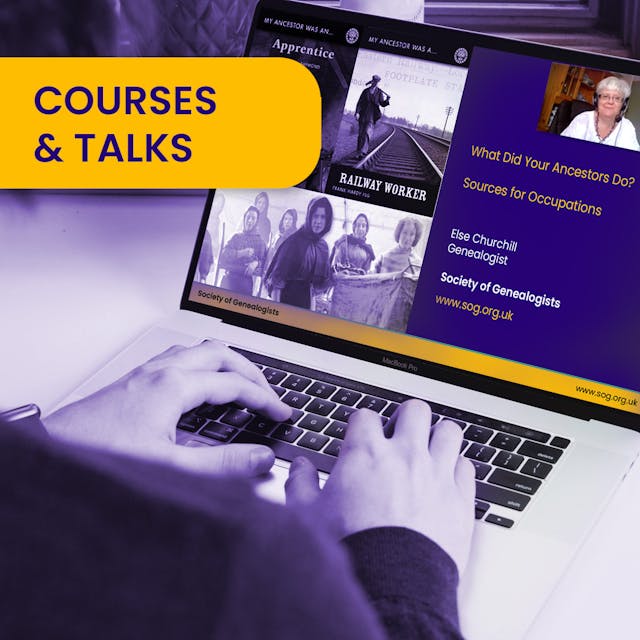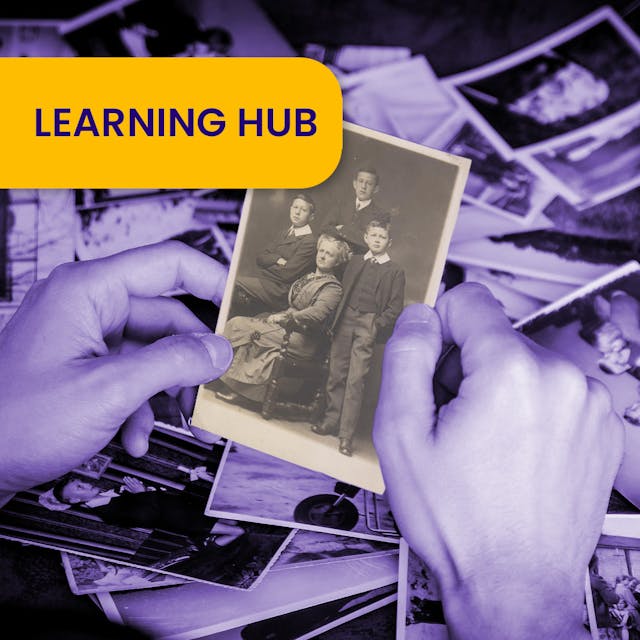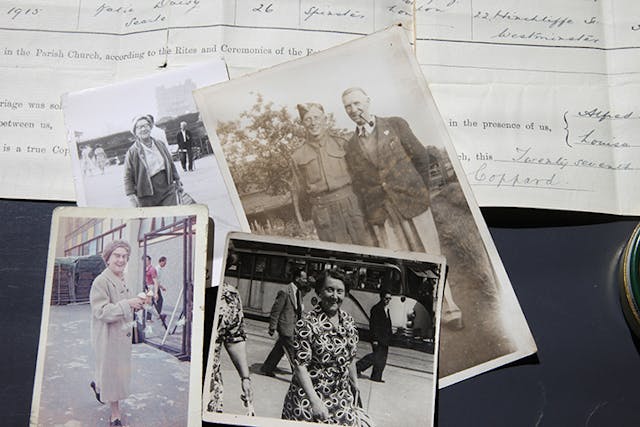Let us help you on your genealogy journey

Courses and Talks
Discover our wide variety of learning events. From courses, to talks, to walks and visits. We cover a wide range of different subjects, all delivered by expert tutors, experienced genealogists and knowledgeable historians.

Membership
Discover the many benefits of joining us.
From access to our extensive collections to an ever-growing library of talks, as part of our thriving genealogy community, you'll improve your research techniques and get expert support when you need it.

Learning Hub
Enjoy a wide range of family history stories and articles, from quick tips to in-depth guides, from fascinating stories to funny discoveries. Frequently updated by our in-house genealogy experts, there's something here for everyone.
Our Courses and Talks

Family History Skills Courses
Our Stage 1 to 3 Family History Skills Courses will take you from beginner to advanced genealogist. Learn from expert genealogists and tutors. Delivered online via Zoom, all sessions are recorded and available to watch at your own pace.

Discover Our Upcoming Courses, Talks and Walks
Discover new courses, talks, walks and visits each month. Delivered by experts in genealogy or history our educational opportunities cover a vast array of topics. From techy tools to history to genealogical research tips. Check out this month's offering (and beyond) here.
Explore our collections
Court Records
Our ancestors appeared in many different types of courts – criminal, civil and equity – either as plaintiffs or defendants, criminals or victims.
Parish registers
First introduced in 1538 the Parish registers of the Church of England record baptisms, marriages and burials.
Poor Law Records
Many of our ancestors lived precarious lives and if they grew old and inform could not work or fell ill or bore illegitimate children they may have become a burden on the community.
Apprenticeships
Evidence of apprenticeship is more likely in 18th century than at any other time from town freemen records, London guilds, parish pauper apprenticeships and the tax levied on apprentice indentures.
Find out more
About us
We all want to know where we’re from; to solve the mysteries of our past; to connect with people whose lives lead to ours; to feel as they felt; to wonder what we would have done in their place.
Our mission and vision
Our vision is a world in which everyone has convenient, affordable access to records, finding aids, knowledge and skills necessary to conduct authoritative research into family history.
Sign up to join our newsletter!
The SoG monthly newsletter is packed with tips, details of our book of the month, and a roundup of all the latest genealogy news. This is an essential read for family history lovers.
Join us
As a member, you can make the most of our resources, access our experts, and find a welcoming community of people interested in family history and genealogy.
We all have roots. Let’s find them together.
